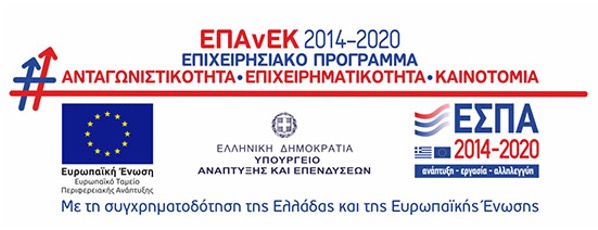CELI 1-3 Adolescenti diplomas are aimed at children aged 12-16, with topics adapted for students of this age group, following the same examination structure that corresponds to the same level of language proficiency as the CELI 1-3 examinations.
It is considered the lowest level of language use – the point at which the student can
- to communicate in a simple way,
- to ask and answer simple questions about himself, where he lives, the people he knows, the things that belong to him,
- to start and respond to simple statements about urgent needs or very familiar issues
- be based on a specific, lexically organized repertoire of phrases that he uses in specific circumstances.
At this level we encounter skills that indicate social functions and everyday circumstances with predictable content , although the user will generally need to simplify the message and search for words such as:
- use simple everyday polite greetings and addresses, greet, ask what his interlocutors are doing and react to the news,
- to address and accept invitations, to make simple transactions in shops, post offices or banks,
- get simple travel information, use public transport: buses, trains and taxis, ask and give directions and buy tickets
- give brief, basic descriptions of events and activities,
- use simple descriptive language to talk briefly about objects and things that belong to him and to compare them.
CELI 2 -Universities for Foreigners of Perugia
Diploma certifying the mediocre level of the Italian language and corresponding to level B1 of the Common European framework for modern Languages of the European Council.
At this level we encounter the language skills of the holder with a special feature the ability to flexibly manage problems in everyday life, such as:
- handle most situations that may arise when arranging a trip
- to enter unprepared in discussions on known topics
- ask someone to clarify or analyze what he just said.
- give specific information requested in a collaboration (eg describe symptoms to a doctor)
- to explain why something is a problem
- summarize and give his / her opinion on a short story, an article, a speech, a discussion, an interview or a documentary and answer questions for further details;
- conduct a prepared interview, checking and confirming information, although he may occasionally ask for a repetition if the other person’s response is too quick or lengthy.
Quida Plida B1
Level B1 guarantees you the ability to understand written and spoken texts written in standard language related to familiar topics (for example in the context of work, school and leisure). At this level you will know how to use the Italian language to describe experiences and events, wishes and projects, and to briefly state views, reasons and explanations.
Diploma Intermedio di Lingua Italiana – level B1
The Italian Educational Institute of Athens , organizes the examinations for the Diploma di Lingua Italiana degrees at level B1 of the Common European Framework.
The basis of success for the candidate is a score of at least 48/80. In case of failure in a module (written or oral) it can be re-examined only in that one (in one year), paying a new exam fee.
CELI 3 – University of Straneri di Perugia
Represents Level B2 which emphasizes the effective argumentation of the student who:
- makes assumptions about causes, consequences, hypothetical situations, evaluating alternative propositions, answering assumptions.
- understands in detail what is being said to him in standard oral speech even in a noisy environment;
- Converses with naturalness, ease and efficiency and deals with a degree of ease and spontaneity that allows smoothly interacting with natural speakers without much effort
- gives feedback on statements and conclusions of other speakers or extends them, thus helping the discussion to evolve;
- develops an argument systematically by properly emphasizing the important points and the relevant details that support them.
The second focus is a degree of language awareness of the user, correcting mistakes if they have led to misunderstandings, generally correcting language inaccuracies and mistakes if he realizes them.
Quida Plida B2 Exams:
Level B2 certifies your proficiency in Italian where you can use it to do:
- enroll in a school or an Italian university,
- attending vocational training courses,
- engaging in work activities that involve contact with the public.
At this level, you can easily
- socialize with Italian-speaking individuals and groups of people
- use Italian for work related to your field of specialization
Diploma of Lingua Italiana – level B2
The Italian Educational Institute of Athens , organizes the examinations for the Diploma di Lingua Italiana degrees at level B2 of the Common European Framework.
The basis of success for the candidate is a score of at least 48/80. In case of failure in a module (written or oral) it can be re-examined only in that one (in one year), paying a new exam fee.
State Graduate Certificate of Language Proficiency (CPG)
LEVEL B (B1-B2)
- The total of the questions of each single graded test allows to secure 200 credits, half of which come from the questions of the lowest level of difficulty (B1) and the rest from the questions of the highest level of difficulty (B2).
- Examiners who obtain a score from 60 to 119 are awarded a B1 certificate
- Examiners who obtain a score from 120 to 200 credits are awarded a B2 certificate, provided they have obtained a score equal to or greater than the following: First module 15 credits, second module 18 credits and third module 15 credits.
CELI 4-C1 | University of Foreigners of Perugia |
CELI 4-C1 certifies knowledge of the Italian language at level C1 of the Common European Framework. The excellent knowledge of the language and the perfection of the ways of expression, necessary for the complete use of the language, are characterized.
Exam description :
- Comprehension and production of Written Speech (165 ′)
- Language skills (75 ‘)
- Comprehension of Spoken Language: (25 ′)
- Production of Oral Speech: (20 ′)
CELI 5-C2 | University of Foreigners of Perugia |
The CELI 5-C2 certifies knowledge of the Italian language at level C2 of the Common European Framework. The holder participates in any kind of discussion using rich vocabulary and suitable for any occasion, uses every means of expression correctly, either orally or in writing. It is expressed directly in Italian and in the same way his thinking is adapted.
Quida Plida C1 exam:
- At level C1 the holder acquires significant confidence in the language and its use in Italian companies, being able to use his skills in complex work activities (in the commercial and administrative field)
- can understand and produce complex texts, also approaching complex concepts, such as those that characterize literary texts.
Quida Plida C2 exam:
- At level C2 the holder can easily understand almost everything he hears or reads.
- Can make summaries based on information from different oral or written sources, composing arguments and descriptions in a coherent presentation.
- It can be expressed spontaneously, with great comfort and accuracy, distinguishing subtle semantic nuances even in very complex circumstances.
Diploma Avanzato di Lingua Italiana – level Γ1
Superior Diploma in Italian Language and Culture – level Γ2
The Italian Educational Institute of Athens , organizes the examinations for the Diploma di Lingua Italiana degrees at levels C1, C2 of the Common European Framework.
The basis of success for the candidate is a score of at least 48/80. In case of failure in a module (written or oral) it can be re-examined only in that one (in one year), paying a new exam fee.
The structure of the C1 level examination is as follows:
- Written examination : The comprehension of written and oral speech as well as knowledge of grammatical phenomena is examined (130 ζεται)
- Production of written speech (90 ′)
Oral Exams: The candidate interacts with the examiner by commenting on an article, image or expression and introducing himself / herself (15′-20 ′).
State Graduate Certificate of Language Proficiency (CPG) LEVEL C (C1-C2)
The examination system for the State Certificate of Language Proficiency (KPG), although aimed at Greek-speaking people, has a European orientation and adopts the principles set by the Council of Europe (CoE) and the European Commission (EU).
- The total of the questions of each single graded test allows to secure 200 credits, half of which come from questions of the lowest level of difficulty (C1) and the rest from questions of the highest level of difficulty (C2).
- Subjects who obtain a score from 60 to 119 are awarded a C1 certificate
- Examiners who obtain a score from 120 to 200 credits are awarded a C2 certificate, provided they have obtained a score equal to or greater than the following: First module 15 credits, second module 18 credits and third module 15 credits.







